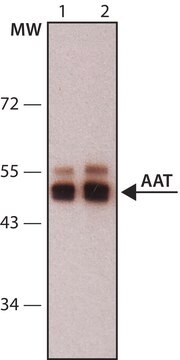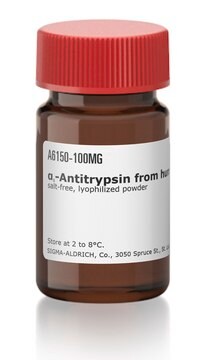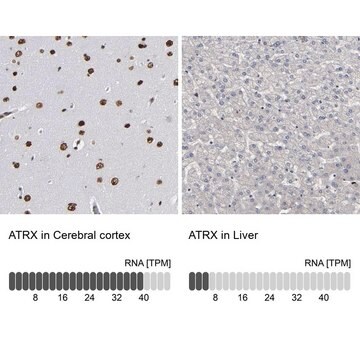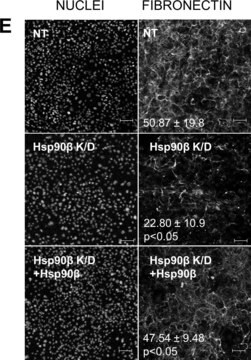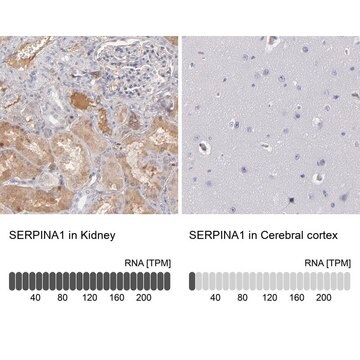A0409
Anti-α1-Antitrypsin antibody produced in rabbit
IgG fraction of antiserum
Sinónimos:
Alpha 1 Antitrypsin Antibody, Alpha 1 Antitrypsin Antibody - Anti-α1-Antitrypsin antibody produced in rabbit, anti-A1AT
About This Item
Productos recomendados
origen biológico
rabbit
Nivel de calidad
conjugado
unconjugated
forma del anticuerpo
IgG fraction of antiserum
tipo de anticuerpo
primary antibodies
clon
polyclonal
mol peso
antigen ~50 kDa
reactividad de especies
human
envase
vial of 2 mL lyophilized antiserum
técnicas
immunoelectrophoresis: suitable
indirect ELISA: 1:30,000-1:60,000
Nº de acceso UniProt
temp. de almacenamiento
2-8°C
modificación del objetivo postraduccional
unmodified
Información sobre el gen
human ... SERPINA1(5265)
Descripción general
Inmunógeno
Aplicación
Western Blotting (1 paper)
Forma física
Cláusula de descargo de responsabilidad
¿No encuentra el producto adecuado?
Pruebe nuestro Herramienta de selección de productos.
Código de clase de almacenamiento
10 - Combustible liquids
Clase de riesgo para el agua (WGK)
WGK 1
Punto de inflamabilidad (°F)
Not applicable
Punto de inflamabilidad (°C)
Not applicable
Certificados de análisis (COA)
Busque Certificados de análisis (COA) introduciendo el número de lote del producto. Los números de lote se encuentran en la etiqueta del producto después de las palabras «Lot» o «Batch»
¿Ya tiene este producto?
Encuentre la documentación para los productos que ha comprado recientemente en la Biblioteca de documentos.
Nuestro equipo de científicos tiene experiencia en todas las áreas de investigación: Ciencias de la vida, Ciencia de los materiales, Síntesis química, Cromatografía, Analítica y muchas otras.
Póngase en contacto con el Servicio técnico